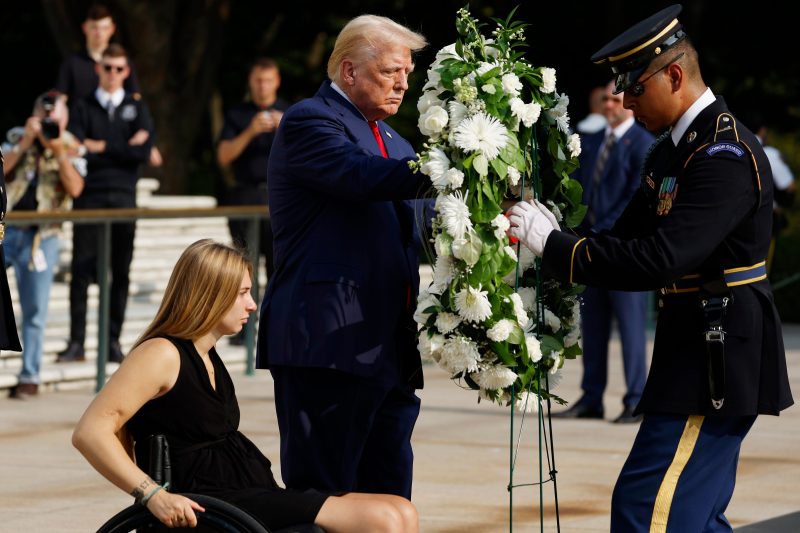In the ever-evolving landscape of global politics and military supremacy, world leaders are constantly striving to assert their dominance and secure strategic advantages over their adversaries. In the United States, two prominent figures have emerged as key players in this ongoing power struggle – former President Donald Trump and Vice President Kamala Harris. As these two political heavyweights jockey for advantage on military strength, their approaches and priorities shed light on their contrasting visions for America’s role in the world.
Former President Trump, known for his America First agenda, placed a strong emphasis on bolstering the nation’s military capabilities during his time in office. Trump’s administration focused on increasing defense spending, modernizing the armed forces, and projecting strength on the world stage. Through initiatives such as the Space Force and investment in advanced weaponry, Trump sought to position the United States as an unparalleled military force, capable of deterring potential adversaries and protecting American interests abroad.
On the other hand, Vice President Harris represents a shift towards a more diplomatic and multilateral approach to national security. Harris has advocated for a reevaluation of the country’s military priorities, emphasizing the importance of alliances and partnerships in addressing global challenges. While recognizing the need for a strong defense, Harris has also emphasized the value of soft power tools such as diplomacy, development aid, and international cooperation in promoting American interests and values around the world.
The clash between Trump’s brash, unilateralist approach and Harris’ more nuanced, collaborative strategy reflects a broader debate within the United States about the country’s role in the international arena. Trump’s supporters applaud his efforts to strengthen the military and assert American dominance, viewing his approach as a necessary response to growing threats from rival powers. On the other hand, Harris’ advocates argue that a more diplomatic and inclusive strategy is better suited to addressing complex, interconnected global challenges such as climate change, pandemics, and terrorism.
As the competition for military advantage continues to unfold, it is clear that the choices made by leaders like Trump and Harris will have far-reaching implications for America’s security and influence in the world. Whether through military might or diplomatic finesse, the United States faces a critical juncture in defining its role as a global superpower and navigating the complex challenges of the 21st century. Only time will tell which approach – Trump’s assertive unilateralism or Harris’ collaborative diplomacy – will shape the future of American power on the world stage.



























